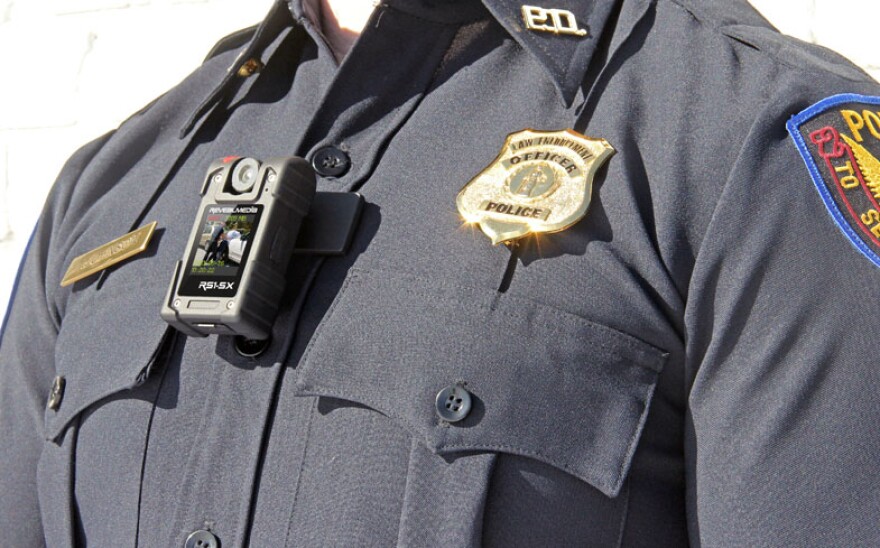A bipartisan group of North Carolina lawmakers is proposing that some of the state’s largest police departments and sheriffs’ offices be required to have their officers wear body cameras while they’re on patrol.
The bill—which would impact law enforcement agencies serving roughly 60 percent of the state’s population, including in Raleigh, Charlotte, Wilmington and Asheville—would set aside $10 million over two years to help agencies pay for the cost of equipment and storing thousands of hours of video.
House Bill 537 was drafted as the deaths of unarmed black males at the hands of white officers across the country and North Carolina have sparked debate over accountability and trust. But while some advocates have called for measures to reduce police use of excessive force, Rep. Edward Hanes (D-Forsyth), one of the bill’s lead authors, emphasizes that a goal of the bill is to help improve relations between departments and communities they serve.
Reps. Kelly Alexander (D-Mecklenberg), Rep. Chuck Jeter (R-Mecklenburg), and Rep. Jason Saine (R-Lincoln) are also primary sponsors.
“We’re going to do everything we can to make sure that we can avoid such interactions that we've had across the country,” Hanes said. “But what it really ultimately comes down to is, how do we protect our law enforcement and community relationships? We have to work together, and we have to live together.”
Some North Carolina chiefs have already chosen to deploy body cameras. In 2013, the Greensboro Police Department bought 450 cameras and trained its officers to use them. The Charlotte City Council voted to spend $7 million to buy cameras for police, the Charlotte Observer has reported. And the Wake County Sheriff is considering using body cameras, if he secures funding for them, the News & Observer reported.
A 2014 Cambridge University study showed that evidence capture in Rialto, Calif., over a 12-month period reduced abusive behavior toward police and unnecessary use of force by police. Officer use of force dropped 59 percent and reports against officers dropped by 87 percent, compared to the previous year’s figures, the study said.
At the Greensboro Police Department, which has more than 400 patrol officers, footage from body cameras has been used for training purposes, helped resolve complaints against officers and can be used for court purposes, said police spokeswoman Susan Danielsen. Danielsen would not specify the cost of video storage, citing a provision in the contract with service provider Taser International, which keeps the department from releasing that information.
"It does come with a pretty solid fiscal cost, but I think the benefits that are derived from the cameras are worth the cost," Danielsen said.
Statewide law enforcement associations oppose the proposal because it would force chiefs and sheriffs in in counties where the population is higher than 200,000—roughly the 10 most populous counties—to deploy cameras. It would be an option for agencies in the remaining counties. Those could also apply for the state funding that would match $1 for every $5 spent locally for equipment and data storage. The bill would also require State Highway Patrol officers and state corrections officers to wear cameras.
“Police chiefs aren't opposed to cameras. That's why we've been buying them and deploying them,” said Fred Bagett, an attorney representing the North Carolina Association of Chiefs of Police. “But requiring that we use them, and dictating that we use them every time there's an interaction is too much of a leap, and it hasn't been thought through.”







